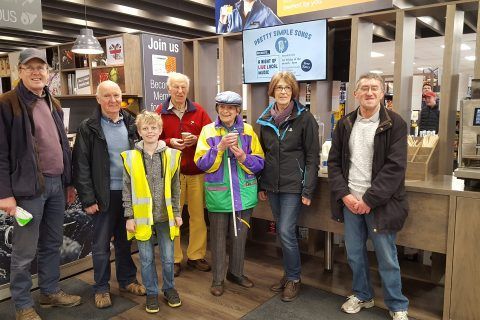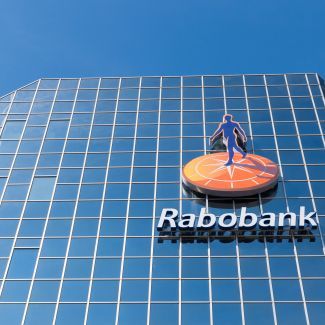
As businesses driven by their members’ needs and aspirations, cooperatives grant paramount importance to the sustainable development of the communities in which they operate.
Being deeply embedded in their local areas also makes cooperatives more likely than other enterprises to encourage commercial transactions within their communities and engage with the public at large about the benefits of cooperation.
Dutch cooperative banking group Rabobank, which focuses on delivering all-finance services in the Netherlands and serving Food & Agri customers internationally, believes responsible community engagement can help differentiate it from other banks. Rabobank’s marketing focuses on the fact that it is a locally embedded cooperative that wants to address local issues with its members.

And there is a competitive benefit to members steering the business: it means the bank is less likely to take on risky activities. Rabobank survived the 2008 financial crisis well and without government support, reporting the highest net profit in its history in 2010.
Being a cooperative also has reputational advantages. Rabobank’s reputation benefits when large numbers of members are engaged in the organisation, vote on specific issues, or form member groups set up to address local issues.
Members are also at the heart of the Midcounties Co-operative, a UK consumer cooperative. The society engages with its 700,000 members to realise its cooperative value by providing unique member-led products and services. This approach, and the development of values-led products and services, is illustrated in many ways, for example through the Midcounties’ Co-op Community Power product, which was developed after members asked the society to support community renewable energy.
The Community Power tariff is the UK’s only consumer product providing 100% community-generated green energy. This forms part of Midcounties’ wider Co-op Community energy initiative, which sees the society work with over 100 community energy groups across the UK to provide a route to market for unsubsidised community energy generation.
Midcounties uses its cooperative identity to ensure that its members see it as reliable, principled and genuine - trusting it to deliver what they need in the way they expect. The cooperative also runs the Cooperative Childcare business across its 46 nurseries. The values driven approach is led by what matters to members, parents, children and communities. This member-led trust in turn develops a stronger connection with its members to drive advocacy of Little Pioneers and other ‘Your Coop’ businesses.
Another example of Midcounties' member-led approach is its ‘1 Change’ programme, which encourages members to make positive behaviour changes to tackle climate change.
From a community perspective, the member-led approach enables Midcounties to involve members in issues that are relevant to where they work, live and learn, ultimately helping to build strong local communities. Through this approach Midcounties has achieved a range of positive impacts in the community, including undertaking over 140,000 home deliveries to vulnerable or housebound Society members – a service launched during the pandemic in response to an immediate and vital member need. The Society has been given several awards for its work in the community including the prestigious recent award of ‘Sustainable Business of the Year’ by EDIE.
CEO Phil Ponsoby was a panellist at the World Cooperative Congress in December, where he described how the Midcounties Co-operative is putting its values in action to promote its cooperative difference and engage and attract colleagues and members.
He says: “I was delighted to be joining the session on Co-operative identity. The Midcounties Co-operative is a values-driven, thought leading, member-led organisation. We are proud to have incorporated the ICA Coop marque into our branding. The ‘Your Coop’ brand is being rolled out across our trading operations and websites. It represents an organisation which has stretched well beyond its original regional heartlands particularly within its Travel and Childcare operations whilst also developing innovative digital propositions across utilities and healthcare. But more than this, the Your Coop brand talks directly to our members, colleagues, consumers, communities and partners: we want to affirm that this is their cooperative where they can make a real difference by joining in and influencing what we do and how we do it.”
Another cooperative deeply rooted in the local community is Enhancing Organic Food Cropping Cooperative (ENOFOCC) from Cameroon, which is encouraging the use of organic fertiliser in a sustainable manner.
ENOFOCC is treating and marketing organic manure obtained from livestock to boost production and preserve food quality. Composting of animal manure has traditionally been carried out by farmers in the Nkwen community. However, the youth co-op aims to improve the quality of the manure by enhancing its handling, transportation and management by using a rudimentary methodology. The cooperative treats the manure, which is then sold as an organic fertiliser.
Members say that cooperative values of honesty, openness, social responsibility and caring for others are crucial to the business. “ENOFOCC was born to meet the needs of our members while caring for our community,” said one of them.
ENOFOCC was among the winners of the ICA Youth Network replication project, which provided business support and funding.
As cooperatives large and small from around the world continue to assert their cooperative identity, their businesses continue to thrive.
Photo: members of the Midcounties Co-operative




